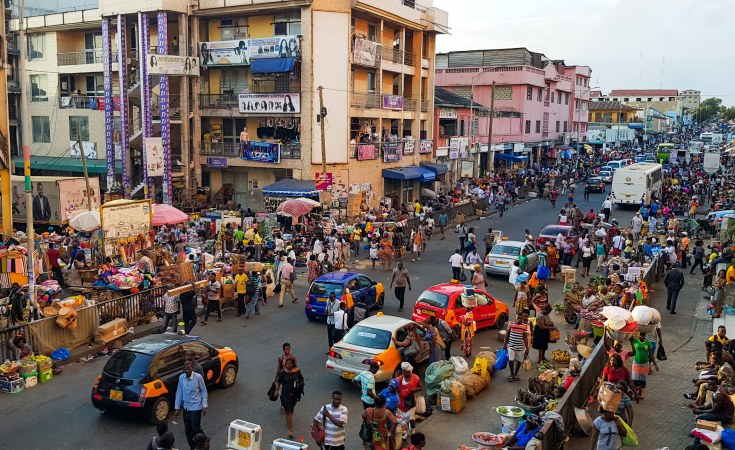City authorities in Accra are grappling with the persistent challenge of street hawking and sales on pavements, pedestrian walkways, and median of road at Kwame Nkrumah Circle and the Central Business District (CBD) of Accra.
Despite previous attempts by the assemblies to curb these activities, traders continue to sell wares such as foodstuff, cosmetics, jewelries and foot wears at these undesignated places.
Besides the evident congestion, their activities also contribute to the destruction of green grass and flowers planted at the Kwame Nkrumah Circle and in the CBD, intended for the beautification of the city.
Additionally, the drainage systems in the affected areas are choked due to indiscriminate dumping of rubbish while the activities of the traders are contributing to vehicular congestion, particularly in the CBD.
Related Articles- Parliament to enquire into Akosombo Dam spillage - Speaker November 1, 2023
- UEW female students, residents undergo breast cancer screening October 11, 2022
Apart from the traders, truck pushers and 'loading boys' are contributing to the congestion and unsanitary conditions in the CBD, especially at their various sleeping places in the city centre.
A journey which should take less than 10 minutes from the Kwame Nkrumah Circle to the United Trading Company (UTC) area in the CBD could take more than forty minutes due to traffic congestion.
As a result, pedestrians are forced to navigate the CBD by maneuvering through vehicles.
During a visit to the Ghana Cocoa Board, Rawlings Park, Makola, Accra Technical University, Kinbu, and Tema Station areas, the reporters observed the disorder and the helpless situation facing the city authorities.
While some traders cited inadequate market space for their activities, others claimed their potential customers found it inconvenient to shop in the market, with another group, including Madam Portia Annan, saying they were forced to sell on the street because they could not afford to rent shops.
Mr John Addison, a commuter, called on the government to drive away traders from the streets to ensure the safety of all.
Some of the 'loading boys' told the Ghanaian Times that they worked for transport operators in the area and since they could not afford rent charges in Accra, they slept in there.
When contacted, the Public Relations Officer of the Accra Metropolitan Assembly (AMA), Mr Gilbert Ankrah, acknowledged that the trader population in Accra was increasing and that there were plans by the AMA to redesign the markets in the CBD to accommodate more traders as well as drive away those selling at unauthorised areas.
The Municipal Chief Executive (MCE) for the Klottey Korle Municipal Assembly, Mr Samuel Adjei Tawiah, said negative attitude of the public towards sanitation at circle was worrying and pledged that the assembly would continue to find workable solutions to restore the place to its former glory.
In the interim, he said a special task force had been formed to deal with the issue of squatters and traders who had taken over the pavements and pedestrian walkways.
In addition, the MCE said the assembly had been engaging the political parties to stop the indiscriminate posting of advertising materials on the interchange at Circle.
"We are engaging to see how we can collaborate with the private sector to convert the lawns within the interchange area into some sort of recreational areas, which the public can patronise. It could become some kind of business but we are still thinking through it," he said.


